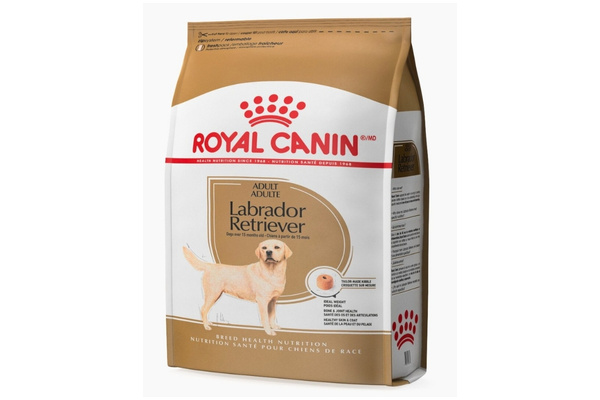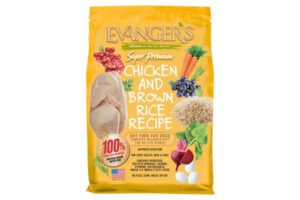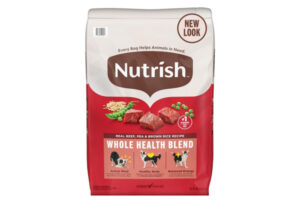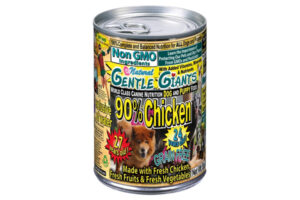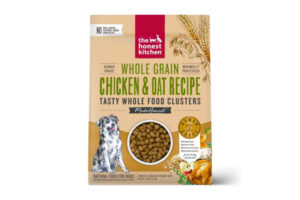When it comes to premium pet nutrition, few brands have the scientific pedigree and specialized approach of Royal Canin. As a dog nutritionist who’s analyzed countless formulas over the years, I find their methodical approach to canine nutrition fascinating. Royal Canin doesn’t just make dog food—they engineer precise nutritional solutions based on size, breed, age, and health conditions. Let’s dive into what makes this brand unique in the crowded dog food market and whether it might be the right choice for your four-legged friend.
The Royal Canin Story: Science-First Nutrition
Royal Canin began in 1968 when French veterinarian Jean Cathary noticed a connection between diet and his canine patients’ skin and digestive issues. Instead of treating symptoms, he created a cereal-based recipe that addressed the root causes. This science-based approach remains at the heart of everything Royal Canin does today.
After being acquired by Mars in 2002, Royal Canin has continued to expand while maintaining its core commitment to nutrition-based health solutions. Unlike brands that focus primarily on ingredient marketing, Royal Canin prioritizes the nutritional profile and how it affects specific dog populations. I’ve always appreciated their unwavering focus on outcomes rather than food trends.
Product Range: Specialized Solutions for Every Dog
Royal Canin’s product lineup is impressively comprehensive, offering one of the most specialized selections in the industry. Their formulas are categorized in several ways that help target specific needs:
Size-Based Nutrition
The brand recognizes that a Chihuahua and a Great Dane have fundamentally different nutritional requirements. Their size-based formulas include X-Small (under 8 pounds), Small (9-22 pounds), Medium (23-55 pounds), Large (56-100 pounds), and Giant (over 100 pounds). Each formula addresses size-specific concerns like joint support for larger breeds or dental health for smaller dogs.
Breed-Specific Formulas
One of Royal Canin’s most distinctive offerings is their breed-specific line, with formulas tailored for over 30 different breeds. These aren’t just marketing gimmicks—they consider factors like jaw structure (custom kibble shapes), breed-specific sensitivities, and genetic predispositions. For example, their Boxer formula supports heart health, while their German Shepherd food aids digestive sensitivity.
Veterinary Diets
Royal Canin’s prescription line requires veterinary authorization and targets specific health conditions. These include formulas for gastrointestinal issues, kidney disease, food allergies, urinary health, and weight management. In my professional experience, these therapeutic diets often show impressive results for dogs with chronic conditions. The downside? They come with a premium price tag, typically ranging from $80-100 for a medium-sized bag.
Not sure if Royal Canin fits your dog’s needs? The Taste of the Wild review offers insights into another popular option with a different nutritional philosophy.
Ingredient Quality and Formulation
Royal Canin takes a nutrient-focused rather than ingredient-focused approach. This means they’re more concerned with the nutritional composition than having trendy ingredients listed first on the label. Their formulas often include:
- Animal proteins (chicken, chicken by-product meal, pork meal)
- Grains and carbohydrates (corn, wheat, rice, barley)
- Specialized nutrients (EPA/DHA, glucosamine, prebiotics)
- Vitamin and mineral premixes
Some pet parents might raise eyebrows at ingredients like corn or by-products, but Royal Canin defends these choices from a nutritional standpoint. By-products can be highly digestible protein sources, and certain grains provide specific nutritional benefits. That said, if you’re looking for a grain-free or whole-food focused diet, other brands might better align with your preferences.
Manufacturing and Quality Control
Royal Canin manufactures their products in company-owned facilities, including their newest $450 million plant in Ohio. Their quality control protocols are rigorous, with each batch tested for nutritional adequacy and safety. The company maintains full traceability of ingredients and has implemented enhanced testing protocols following past recalls.
Speaking of recalls, Royal Canin has had relatively few compared to many other major brands. Their most significant recalls occurred in 2006 (due to excess vitamin D) and 2007 (related to the industry-wide melamine contamination). Since then, their safety record has been solid—something I consider a positive indication of their quality control systems.
Nutritional Philosophy: The Science Behind the Food
Royal Canin’s approach centers on what they call “precise nutrition.” Rather than following pet food trends, they base formulations on scientific research conducted at their own facilities and in partnership with veterinary schools worldwide.
This research-driven approach leads to some notable differences from other premium brands:
- Macronutrient profiles tailored to specific needs rather than arbitrary protein minimums
- Inclusion of grains and by-products when nutritionally beneficial
- Focus on bioavailability rather than ingredient source
- Consistent formulation rather than seasonal ingredient changes
In my assessment, this approach has merit, particularly for dogs with specific health needs. However, it sometimes results in formulas that include more processed ingredients than some pet parents prefer.
Price Point and Value
Let’s be straightforward—Royal Canin is not budget-friendly. Their retail formulas typically cost 30-50% more than mainstream premium brands, while their veterinary diets can be twice as expensive. A 30-pound bag of breed-specific food often runs $80-90, while prescription diets can exceed $100.
Is the price justified? That depends on your perspective and your dog’s needs. For dogs with specific health conditions that respond well to Royal Canin’s therapeutic diets, the value may be clear. For healthy dogs without special requirements, you might find comparable nutrition at a lower price point.
What Kind of Dogs is This Food Suitable For?
Royal Canin offers solutions for virtually every life stage and health condition, making their range suitable for most dogs—with some considerations:
Puppies: Their puppy-specific formulas are calibrated for appropriate growth rates, with special attention to large breed puppies who need controlled calcium levels. I’ve found their growth formulations particularly well-designed for promoting healthy development without excessive weight gain.
Adult dogs: The breed and size-specific formulas cater to maintenance needs while addressing common breed-specific concerns. These work well for typical adult dogs without special health needs.
Senior dogs: Their aging-specific formulas provide adjusted protein levels and added joint support. These can be beneficial for older dogs beginning to show signs of aging.
Dogs with health conditions: This is where Royal Canin truly shines. Their veterinary diets for issues like kidney disease, food allergies, diabetes, and digestive disorders are backed by clinical research and often show remarkable results.
Picky eaters: While not specifically designed for palatability above all else, most Royal Canin formulas are well-accepted. Their veterinary diets in particular are formulated to encourage eating even when appetite is compromised.
The dogs that might be less suited for Royal Canin include those thriving on raw or minimally processed diets, dogs with owners who prefer grain-free nutrition (though the necessity of grain-free is debated), and dogs whose owners are on tight budgets.
Is Royal Canin Dog Food Good? My Professional Assessment
After years of analyzing dog foods and seeing their effects on countless dogs, I believe Royal Canin deserves its reputation for scientific rigor and specialized nutrition. However, whether it’s “good” depends on what you’re looking for.
Royal Canin excels in creating targeted nutritional solutions backed by research. Their veterinary diets, in particular, often produce impressive results for dogs with specific health conditions. The brand’s commitment to consistent quality and nutritional precision is commendable.
That said, I wouldn’t universally recommend it as the top choice for every dog. The formulas rely more heavily on processed ingredients and by-products than some competing premium brands. While these ingredients aren’t inherently problematic from a nutritional standpoint, some dogs may do better on diets with simpler, less processed ingredient panels.
The price point also positions Royal Canin as a significant investment. For dogs with specific health needs that respond well to these formulas, that investment is often worthwhile. For healthy dogs without special requirements, comparable nutrition might be found at a lower price point.
My honest assessment: Royal Canin is an excellent choice for dogs with specific health conditions or breed-related concerns that align with their specialized formulas. It’s a good option for owners who prioritize scientific backing and consistency over ingredient trends. It’s a less ideal choice for owners seeking minimally processed nutrition or those on tight budgets.
Find the Perfect Food for Your Unique Dog
While this review provides general guidance about Royal Canin, remember that every dog is truly unique. Your dog’s individual needs depend on their age, breed, size, activity level, health conditions, and even personal preferences.
Instead of guessing which food might work best, why not get personalized recommendations based on your dog’s specific profile? Our free dog food matching tool analyzes your dog’s unique characteristics and suggests the three best food options tailored specifically to them.
The questionnaire takes less than a minute to complete, and you’ll receive science-based recommendations that could make a real difference in your dog’s health and wellbeing. Get your personalized dog food matches via this link—it’s completely free and might just help you find the perfect nutritional match for your four-legged friend.


